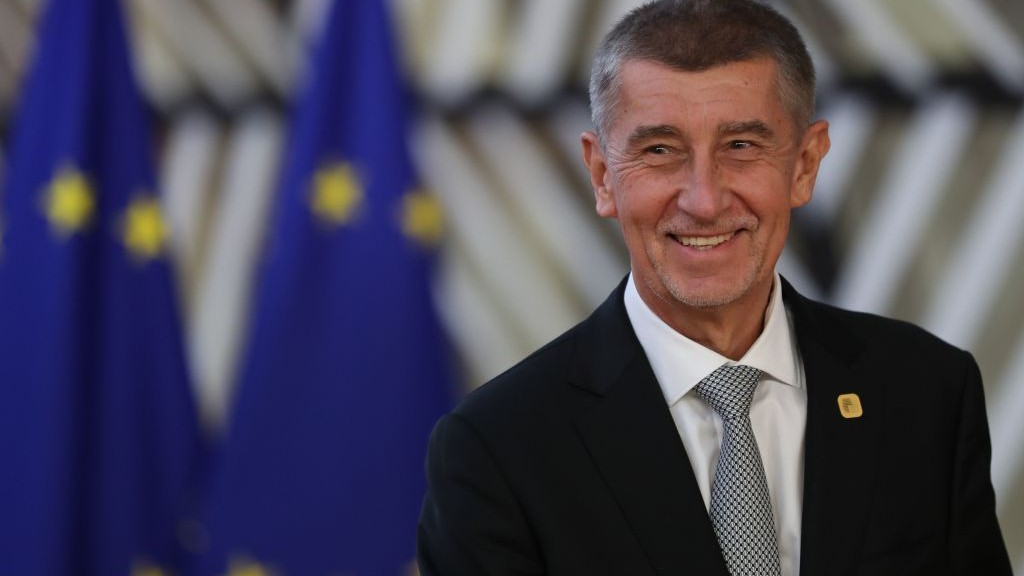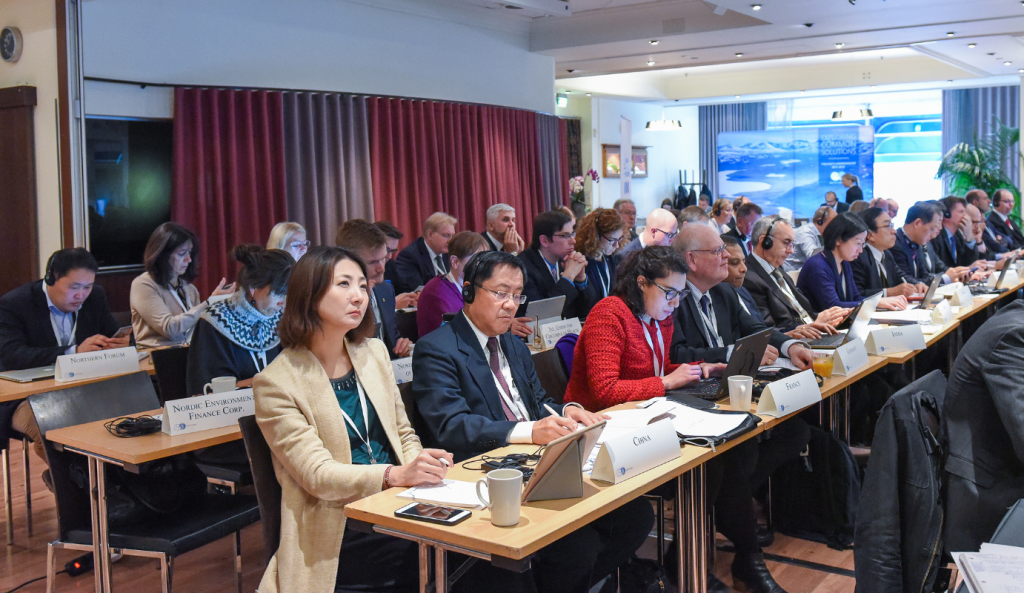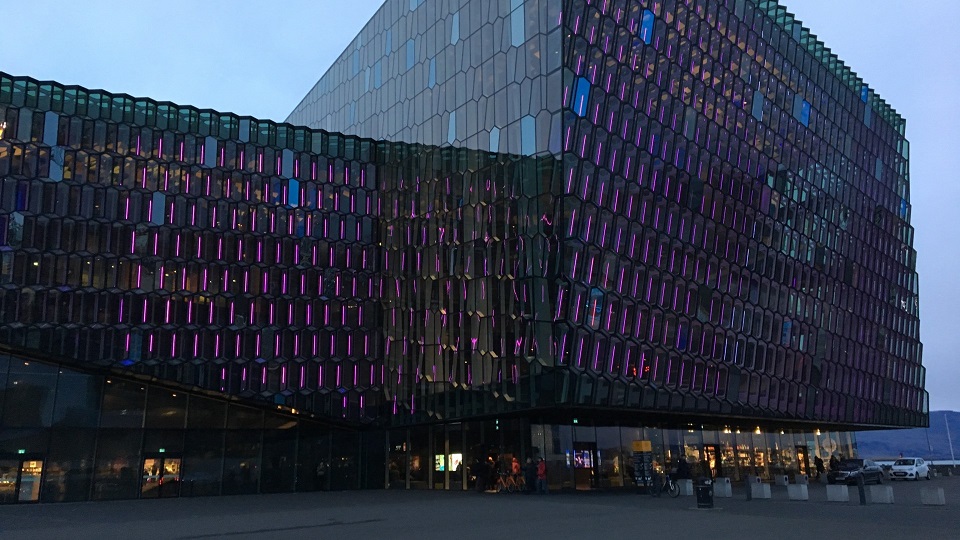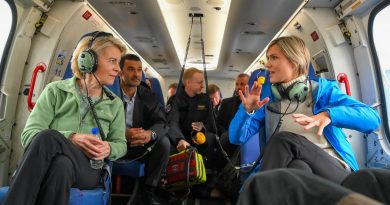Blog: The Czech Republic goes for Arctic Council observer status

Last week, as part of the Virtual Dialogue series created by the Arctic Circle conference to offer an e-platform for policymakers and specialists in Arctic affairs, Tomáš Petříček, Minister of Foreign Affairs of the Czech Republic (Czechia), outlined [video] the developing Arctic interests of his country, which has expanded its polar research interests considerably in recent years.
With the announcement by the government of Prime Minister Andrej Babiš in December 2020 that the Czech Republic would be a candidate to join the Arctic Council as an observer government, the country joins two other European Union members, Estonia and Ireland, in seeking that status. (Turkey, which had made previous attempts to join the Arctic Council as a formal observer, has also reportedly applied for 2021).
It is anticipated that the results of these applications will be announced at the upcoming Council Ministerial meeting in May. Earlier this month, the Council announced that due to continuing travel restrictions caused by the pandemic, this gathering in Reykjavík would be primarily virtual as well. Representatives of the eight Member States and the six Permanent Participants, representing regional Indigenous organisations, would be attending in person, and others by remote. During the assembly, the Chair of the Arctic Council will be passed from Iceland to Russia for a two-year term.
Application differs from EU colleagues
The Czech Republic’s application [pdf] for Council observer status differs in some ways from those of its EU colleagues, as the Central European nation does not have the same ‘Arctic-adjacent’ status which formed a significant component of the Estonian and Irish candidacies. However, as Mr Petříček’s comments, reprinted in an information paper [pdf] published by Prague about Czech history and scientific credentials in the Arctic, included, ‘Irrelative to our geographical position our place is by the side of Arctic states.’
As with the other European applications, scientific expertise and diplomacy, as well as technological and education prowess, have formed the core of the Czech Republic’s case to be included in the group of governmental observers in the organisation. Several European states are included within the thirteen governmental observers, including longstanding Arctic actors like Britain, France, Germany and Poland, as well more recent additions Italy and Switzerland.
In recent written and spoken comments by the Czech government about the country’s experience in the far north, historical figures from the nation who participated in polar exploration and research were noted, further illustrating the strong ties between the nation and the Arctic. These include explorer Julius von Payer, scientist František Běhounek, and Alaska pioneer Frances Sedlacek (aka Fannie Quigley).

Modern research conducted by the country in the Arctic is often based at the Nostoc Field Station, located sixty kilometres northwest from the town of Longyearbyen in Svalbard. Other components of Czech research in the region, collectively referred to as the Julius Svoboda Station, are the Julius Payer House in Longyearbyen and the research vessel R/V Clione, which frequently operates around the Svalbard archipelago.
In detailing Prague’s widening Arctic interests during the webinar, Mr Petříček cited four specific aspects of his country’s observer application. First, he noted the growing importance of the Arctic in relation to the greater questions of climate change. Since the phenomenon affects Arctic and non-Arctic states alike, it was in the interests of Czech Republic to assume an enhanced role in understanding these challenges. The country has also supported calls by the United Nations and the international community to achieve carbon neutrality by 2050.
Second, the Czech Republic’s history of research into polar issues was cited as a major element in the application. This includes not only the ongoing work in Svalbard but also the opening of polar research institutions at Masaryk University (Masarykova Univerzita) in Brno and the University of South Bohemia (Jihočeská Univerzita) in České Budějovice, with both institutions having extensive contacts with the UArctic educational network.
The country had expressed interest in maximising its expertise in key areas of Arctic study within the work of the Council in the sectors of environmental examination, local conservation, and related development issues. Mr Petříček pointed specifically to the potential for Czech engagement with the Council’s Working Groups charged with Arctic monitoring and assessment, sustainable development, and the protection of flora and fauna. As formal observers do not have voting rights in the Council, most day-to-day observer activities take place within the six Working Groups overseen by the organisation.
Education links highlighted
Third, Prague’s Arctic interests are also substantially based on educational linkages, including projects relating to the translation of literature and media by regional Indigenous communities, including those of Inuit and Sámi peoples, and increased interests in Arctic affairs within the country. An Arctic Festival, dedicated to spotlighting Czech research and scientific cooperation in the region, (and occasionally featuring punk rock concerts), has been regularly held since 2018.
Finally, it has been stressed that the Czech Republic is seeking to become an Arctic Council observer in order to deepen ties with the eight members of the organisation, considering the growing importance of the Arctic to international diplomacy. This further engagement was viewed as a necessity to both Arctic environmental and economic policies. The Council was recognised in the Foreign Minister’s remarks as an ideal forum for regional dispute settlements.

Prague had already engaged Arctic governments and organisations both bilaterally and via regional regimes, including the United Nations Convention on the Law of the Sea (UNCLOS), and the Svalbard Treaty, which (then-)Czechoslovakia had signed [pdf] in July 1930, (a rarity for a landlocked state). The Czech Republic government stated it inherited that commitment following the dissolution of the Czechoslovak state in 1993, (Slovakia made a similar statement regarding its support for the Treaty in 2017).
The Czech Republic also opted to increase its activity in several Track II organisations which address Arctic affairs, including the International Arctic Science Committee (IASC), the Forum of Arctic Research Operators (FARO), and the EU-Polarnet group, (the University of South Bohemia hosted the annual Arctic Science Summit Week in 2017).
During his presentation for the Arctic Circle, Mr Petříček acknowledged growing global concerns about security in the far north as the region continues to open up to international activity. However, the Foreign Minister stressed that the regional priorities for his country remained within the scientific realm, including addressing global warming, the need for vigilant environmental protection, and ongoing cooperation between Arctic and non-Arctic actors.
Arctic Council ministerial in May

The upcoming Ministerial in Reykjavík will likely be watched closely for several reasons, including the debut of the Joe Biden administration in US regional dialogue, following a shambolic performance by the American delegation during the previous Ministerial in Rovaniemi in 2019. As well, many eyes will be on Russia, the largest of the Arctic countries, as it assumes the leadership position of the Council and continues to outline its plans for the organisation, (including the suggestion that Moscow will appreciate ‘more active engagement’ of the Council observer states), in the wake of ongoing tensions between the Putin government and NATO. The Arctic’s recovery from the Covid-19 pandemic will also almost certainly be high on the agenda, along with ongoing questions about the state of regional climate change.
However, as with previous such Ministerial meetings, the question of new observers will also be watched closely, given the current and potential roles in shaping regional policies, even indirectly, as the Arctic continues to be viewed from many viewpoints as an international concern.
Related stories from around the North:
Canada: Arctic Council finalizes plans for largely virtual ministerial in May, Eye on the Arctic
Finland: Finnish PM stresses importance of Arctic Council for region’s stability amidst climate change, Yle News
Iceland: Arctic Council’s work on track despite pandemic, now gearing up for 2021 ministerial, says ambassador & SAO, Eye on the Arctic
India: Pole to Pole: India’s Arctic White Paper, Blog by Marc Lanteigne
Ireland: Ireland ready to bring marine and scientific expertise to Arctic Council as observer, says Department of Foreign Affairs, Eye on the Arctic
Norway: Arctic Council creates new expert group on nuclear emergencies, The Independent Barents Observer
Russia: Russia removes critical voices ahead of Arctic Council chairmanship, claims Indigenous peoples expert, The Independent Barents Observer
United States: Analysis – Trump’s legacy leaves Arctic with fewer environmental protections and more risk of conflict, experts warn, CBC News



